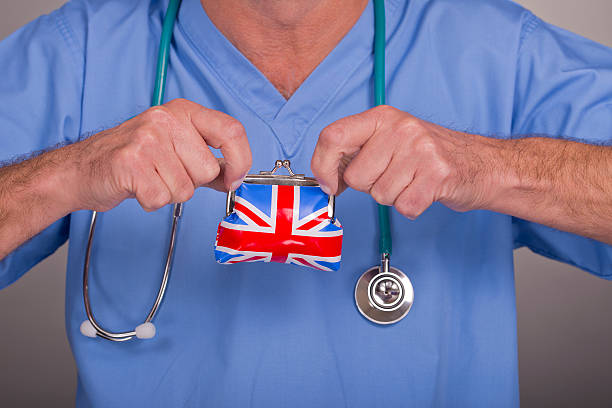When it comes to delivering high-caliber medical treatment to the people of England and the rest of the United Kingdom, the National Health Service (NHS) England is one of the most important institutions. The National Health Service (NHS) has developed into one of the biggest and most comprehensive healthcare systems in the world since it was founded in 1948. This illustrious history dates back to the beginning of the system. This article explores the many facets of the National Health Service in England, including its services, its accomplishments, and the influence it has on the lives of people all around the nation.
Table of Contents
Acquiring Knowledge about the NHS in England
What does “NHS England” stand for?
The National Health Service of England (NHS England) is the public healthcare system that is in charge of providing medical services across England. It is administered by the Department of Health and Social Care, and its funding comes from various taxes; as a result, it does not cost any English citizen anything to utilise it whenever they need it.
The Organisation and the Framework
The National Health Service (NHS) in England is organised into a number of different regional entities, Clinical Commissioning Groups (CCGs), and NHS Trusts, each of which plays a unique part in the provision of healthcare services at the community level.
Fundamental Principles
Accessibility, compassion, excellence, innovation, and patient-centeredness are among the fundamental principles upheld by the National Health Service (NHS) in England. These principles serve as a compass for the choices and practises that healthcare professionals make on a daily basis.

Provided by the National Health Service of England
Services de Primaire de Soin
Primary health care in England is delivered by General Practitioners (GPs) and community clinics under the auspices of NHS England. These services are available to patients for the purpose of addressing general health issues, receiving immunisations, and conducting regular checkups.
Hospitalisation and Medical Care for Specialists
The National Health Service (NHS) provides access to a diverse spectrum of specialised medical treatment, such as cardiology, cancer, neurology, and many more. In order to meet the intricate requirements of patients, hospitals all throughout the United States are outfitted with cutting-edge technology and staffed by highly qualified medical professionals.
Assistance with Mental Health
The National Health Service in England provides extensive mental health services, such as counselling, treatment, and access to mental health experts, in recognition of the significance of maintaining good mental health.
Care in an Emergency
It’s impossible to predict when an accident or an emergency will occur. The NHS in England makes certain that its departments of Accident and Emergency (A&E) are well-equipped and ready to deal with critical medical situations as quickly as possible.
Completion of Goals and Obstacles Encountered
Remarkable Accomplishments

The National Health Service in England has accomplished a number of noteworthy goals throughout the course of its history. Among them are the reduction of waiting times, the enhancement of patient happiness, and the conduct of groundbreaking medical research.
Obstacles in the Form of Funding and Resources
The National Health Service (NHS) in England is experiencing difficulties with its budget and resources, which may have an effect on the treatment that is provided to patients.
Striving for Excellence in Oneself
In spite of the difficulties it faces, NHS England is making persistent efforts to improve the quality of the services it provides, to increase its investment in innovative technology, and to increase the number of highly trained healthcare workers it employs.
The Contributions of NHS England to Society
Access to Healthcare for All People
Because to NHS England’s dedication to delivering free healthcare at the point of use, it is possible for all individuals, regardless of their socioeconomic standing, to have access to the necessary medical treatment they need.
Advancing the Cause of Public Health
The National Health Service (NHS) participates heavily in health promotion efforts, which encourage healthy lifestyles and the prevention of illness.
The Effect on the Economy
Because healthy people are more productive and less likely to need lengthy periods of absence due to illness, a healthy population that is supported by the NHS makes a beneficial contribution to the economy of the nation.
Conclusion
The National Health Service in England is a living example of the commitment of the United Kingdom’s government to guaranteeing access to high-quality medical treatment for all of its citizens. With its comprehensive services, expert medical staff, and patient-centered approach, the NHS continues to touch the lives of millions of people across the nation.
FAQs
Is there no cost for anybody to use the NHS in England?
Absolutely, the National Health Service in England gives all citizens and permanent residents of England access to free medical treatment.
What different kinds of services are available via the NHS England?
Primary care, specialty care, assistance for mental health, and emergency care are only some of the services that are provided by NHS England.
Does the National Health Service in England have to deal with any obstacles?
Yes, the National Health Service in England confronts issues in terms of budget and resources, but it is always working to enhance its services.
How does the National Health Service of England effect society?
The National Health Service in England (NHS England) guarantees that everyone has access to medical treatment, works to improve public health, and has a beneficial impact on the economy.
Everyone is welcome to seek emergency treatment at NHS hospitals, right?
Absolutely, the Accident and Emergency departments of NHS hospitals are prepared to treat critically ill patients who present themselves at their doors.






